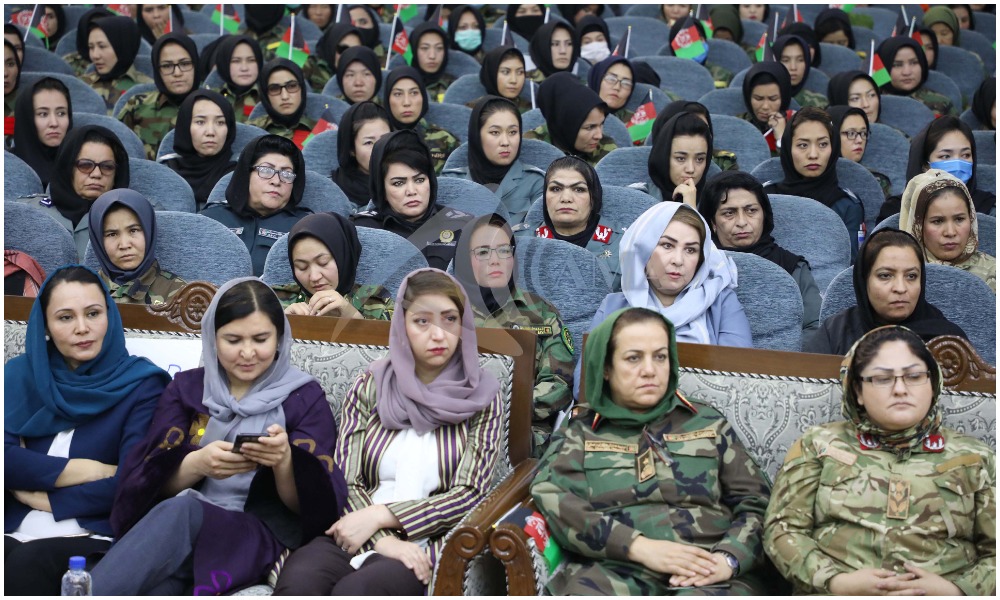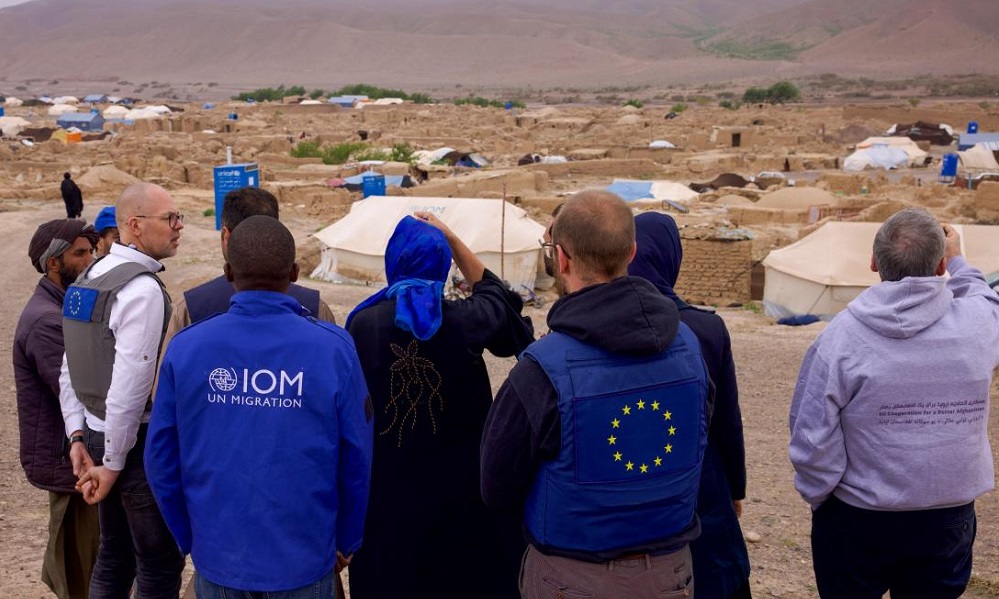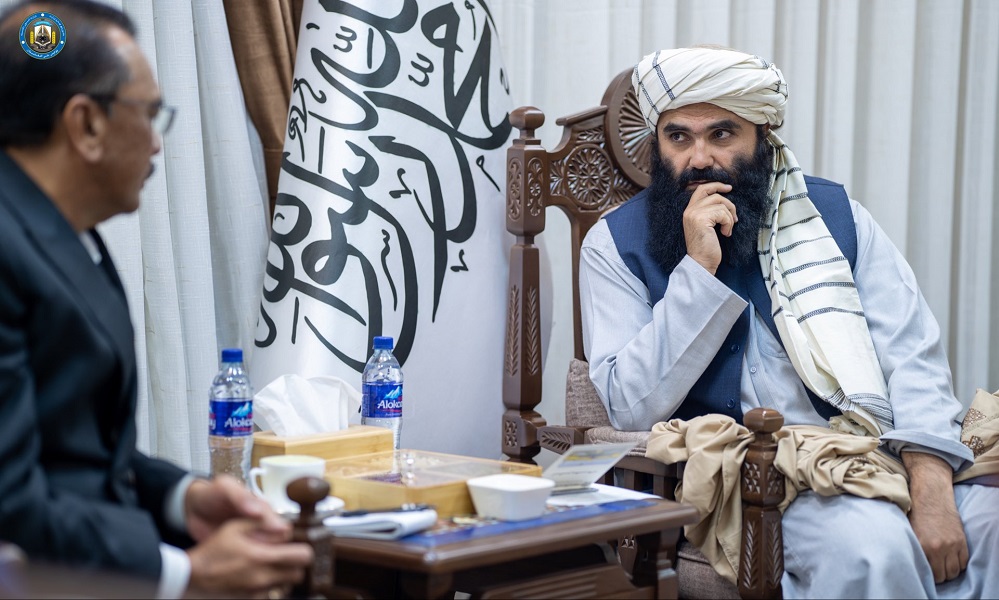Latest News
Watchdog urges unconditional support to protect Afghan women

While donor countries to Afghanistan say they want to keep protecting the human rights of women and girls, a bill introduced in the United States Senate last week raises issues about how requiring the Afghan government to respect rights could potentially lead to cuts in funding for essential services for women and girls.
In an article by Heather Barr, Human Rights Watch Interim Co-Director, Women’s Rights Division, she stated the Protect Women’s and Girls’ Rights in Afghanistan Act would require the US Secretary of State to report twice yearly to Congress on the rights of women and girls in Afghanistan.
It would continue US support to “preserve the rights” of Afghan women but warns that the US will “refuse to provide economic aid to an Afghan government” that violates these rights, Barr stated.
According to her, the bill follows a November 2020 joint statement by Afghanistan’s main donors, including the US, that laid out the “key elements” that would be taken into account when considering whether to continue their current development and budgetary support to the country.
Among those elements was respect for women’s rights.
Efforts to hold this and any future Afghan government to account are vital, she stated. The Afghan government has a poor track record on women’s rights, including failing to investigate and provide accountability for violence against women, she said.
The Taliban, which controls large parts of the country and could gain a role in the government through a peace deal or military success, retains many of their deeply abusive pre-2001 policies toward women and girls, Barr stated.
But donors should consider how they can respond to government abuses without harming women and girls by cutting essential services.
Over 75 percent of the Afghan government’s budget comes from international donors. Cuts in donor funding to Afghanistan have already damaged women’s access to health care and could imperil girls’ access to education, she said.
Barr stated that with the withdrawal of international troops, donor countries may be eager to cut their support to Afghanistan; punishing the government for rights violations could be a convenient excuse.
But defunding the government should not mean defunding services, she stated.
Nongovernmental organizations in Afghanistan have proved they can deliver vital services despite the country’s escalating insecurity, so long as they have sufficient resources.
Countries pulling troops from Afghanistan should make it clear that they will continue to support – and fund – Afghan women and girls, whether or not they can work with the Afghan government, Barr said.
Latest News
EU allocates 17 million euros to support Afghans on the move

The European Union signed an agreement worth 17 million euros with the International Organization for Migration (IOM) to improve access to basic services, increased economic opportunities and protection for Afghans on the move and their host communities in Afghanistan.
The needs of women and girls are a particular focus of the programme, EU said in a statement released on Thursday.
The statement noted that from January 2023 until April 2024, over 1.5 million Afghans returned from Pakistan and Iran.
“I am deeply moved by the hardship returnees face when being deported to Afghanistan. In a country suffering from poverty and climate change, and in a city that just saw devastating earthquakes, this truly is a crisis within a crisis.”, said Peteris Ustubs, Director for the Middle East, Asia and Pacific of the European Commission’s Department for International Partnerships during the signing ceremony at the IOM transit centre in Herat.
Raffaella Iodice, EU Chargée d’Affaires a.i. to Afghanistan, added “The solidarity of the Afghan people towards their brothers and sisters is an inspiration. We must assure that communities hosting and helping new arrivals are supported. The partnership with IOM ensures access to essential services and provides protection for Afghan returnees and their host communities. As women and girls can be particularly affected, we make sure that all members of society can benefit”.
“IOM’s continued partnership with the EU has been critical in enabling our teams to reach hundreds of thousands of Afghan returnees and other vulnerable communities in the country”, said IOM Afghanistan Chief of Mission, Maria Moita. “Thanks to this renewed commitment, we will be able to focus on addressing the immense challenges in the areas of return and contribute to reintegration, social cohesion, and longer-term solutions for those communities.”
This additional contribution is part of a 5-year programme that is being implemented across Afghanistan and in four countries in the region. It builds on the EU’s previous support to IOM to improve the wellbeing of Afghans forced to return to the country, EU said.
Latest News
Malaysia vows to share its experiences on cyber security with IEA

Acting Minister of Interior Affairs Sirajuddin Haqqani has said in a meeting with a delegation from Malaysia in Kabul that Malaysia is an advanced country and that Afghanistan should use is experiences.
According to a statement released by the Interior Ministry, Haqqani, in the meeting on Thursday, emphasized that security is ensured in Afghanistan and unity among Afghans has been restored.
He stated that the Islamic Emirate wants to have close relations and engagement with the world, especially Islamic countries.
The Malaysian delegation consists of representatives of the Ministries of Interior and Defense, and advisers of the Prime Minister’s Office.
According to the statement, a member of the delegation provided information about Malaysia’s capabilities in cyber security and tackling cyber crime, and said that Malaysia will share its experiences in this field with the Islamic Emirate.
In the meeting, the two sides also discussed the fight against drugs, police training, bilateral cooperation and exchange of experiences between Malaysia and Afghanistan.
Latest News
Girls’ education is a ‘vital issue’ for Afghanistan: Karzai

Former president Hamid Karzai said in a meeting with Iran’s ambassador and special representative, Hassan Kazemi Qomi, that education of girls was a “vital issue” for Afghanistan.
Karzai said he appreciated Iran’s cooperation and its standing with the Afghan people, especially Iran’s contributions to education in Afghanistan.
During the meeting, Karzai said peace and stability in the region are in the interest of all regional countries.
-

 Latest News5 days ago
Latest News5 days agoPakistan’s frontiers minister stresses ‘dignified’ return of Afghan refugees
-

 Latest News3 days ago
Latest News3 days agoRashid Khan named AWCC’s brand ambassador
-

 Regional4 days ago
Regional4 days agoIranian president lands in Pakistan for three-day visit to mend ties
-

 Climate Change5 days ago
Climate Change5 days agoMassive river flooding expected in China, threatening millions
-

 World5 days ago
World5 days agoTwo Japan navy helicopters crash, one body found, 7 missing
-

 Sport4 days ago
Sport4 days agoKolkata beat Bengaluru by one run in IPL as Kohli fumes at dismissal
-

 Sport4 days ago
Sport4 days agoACL: Aino Mina 3-0 Istiqlal Kabul; Attack Energy 3-0 Khadim
-

 Climate Change4 days ago
Climate Change4 days agoRescuers race to reach those trapped by floods in China’s Guangdong
























